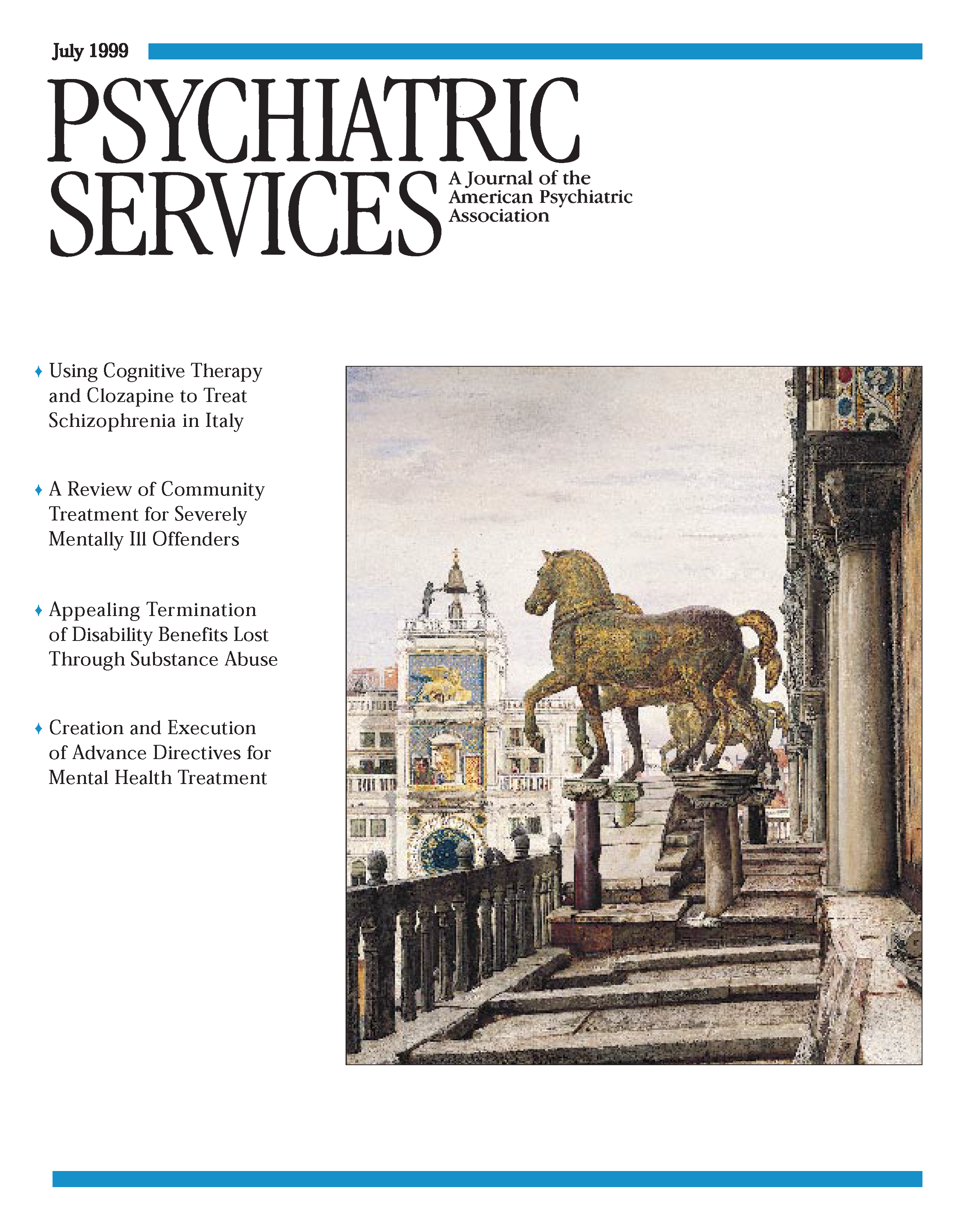Termination of Social Security Benefits Among Los Angeles Recipients Disabled by Substance Abuse
Abstract
Objectives: Although a 1996 federal law terminated Social Security disability benefits to individuals disabled primarily by drug addiction and alcoholism, many were expected to successfully appeal for recertification based on mental illness. This study examined appeal and recertification in Los Angeles County. METHODS: Data for 2,001 persons receiving Social Security disability benefits in 1996 because of substance abuse disability were obtained from the referral and monitoring agency, where each person had completed the Addiction Severity Index (ASI) during an initial visit in the past two years. Administrative data were obtained from the Social Security Administration. Severity of psychiatric symptoms—low, medium, or high—was based on the composite score on the ASI psychiatric subscale. Logistic regression analyses examined the relationship between severity and appeal and recertification status. RESULTS: Fifty-one percent of the subjects scored in the medium- or high-severity range. Appeals were made by 80 percent of the 506 recipients with high scores, 72 percent of the 510 recipients with medium scores, and 74 percent of the 985 recipients with low scores. Recertification rates were 60 percent, 45 percent, and 47 percent, respectively. Compared with recipients who had low scores, those with high scores were more likely to appeal and to be recertified. However, benefits were terminated for 51 percent of recipients with high scores, including all those who did not appeal. CONCLUSIONS: Many recipients of Social Security disability benefits with comorbid psychiatric problems lost benefits either because they did not appeal or because their appeal was denied.



